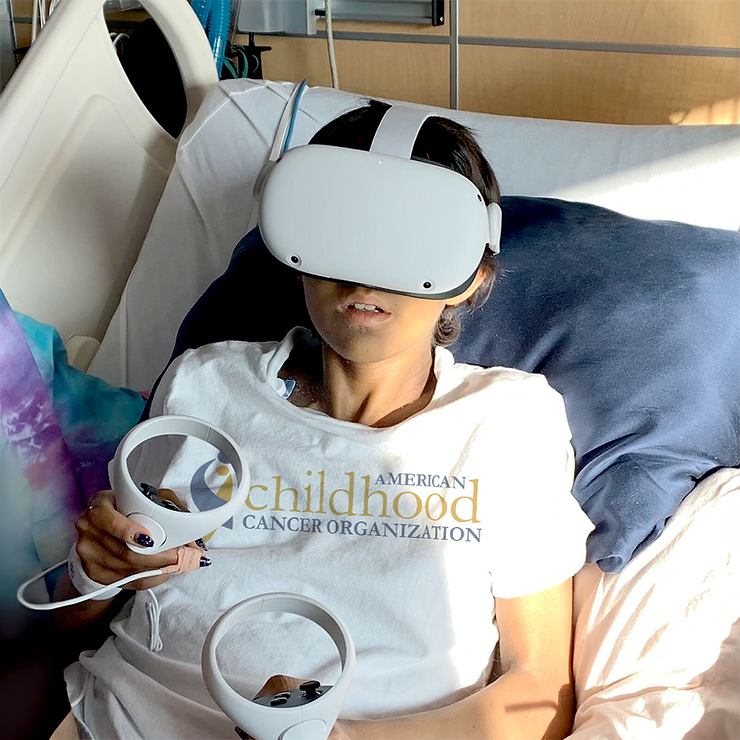2021 has been a wonderful year for 18Loop and our kids with cancer. All of us are grateful that although the pandemic is still not controlled, life is moving ahead. A key focus area for the 18Loop team in 2021 is scientific research. In order to effectively distribute our VR solution, it was necessary to test its safety and efficacy. We are doing this in conjunction with the American Childhood Cancer Organization (ACCO) and Tripp, the company that supplies our Virtual Stress Management Environments. Our Joint Experimental Intervention Research Study (JEIRS) launched in late 2020, and we are already gathering qualitative data and preparing to collect quantitative metrics from the deployed headsets.
The first phase of JEIRS is funded and as of this post, there were eight teens who have either received VR headsets or are expecting them soon. Our team will measure 15 children in total in this first phase, all of whom are teenagers. There is a plan for a subsequent phase that will test Tripp on younger cancer patients. Our early data indicates that Tripp is beneficial in both the inpatient hospital environment and the outpatient home environment. VR Stress Management software like Calm and Focus from Tripp ease the nerves and center our cancer teens. They also fight boredom in the cancer ward by utilizing VR for games and information. In future family interventions, we may connect families virtually even when they can’t meet in person. 18Loop’s overarching goal is to improve survival rates by helping our kids tolerate treatment, recover and thrive. We hope that VR for kids with cancer becomes a non-narcotic solution for pain and helps to combat side effects in a similar way that drugs like odansetron do now.
This Spring, 18Loop is expanding our research to the cancer center. We are at the beginning of an Institutional Review Board (IRB) process that will vet our technology and approach, allowing our team to launch a new research initiative that will expand on our work with the ACCO. Tripp will help us with technology monitoring and by bringing their vast experience working in hospitals to our effort. Together with oncologists, palliative care physicians, 18Loop team members and technologists, we will seek to publish research on our impact and mission. This will allow us to confidently advocate for VR for the pediatric oncology population, with the confidence that our approach is overwhelmingly beneficial. Only then can we begin the process of widely distributing VR technology to as many of the 16,000 children diagnosed with cancer each year that can benefit like our early study participants. Please support us in our efforts!
